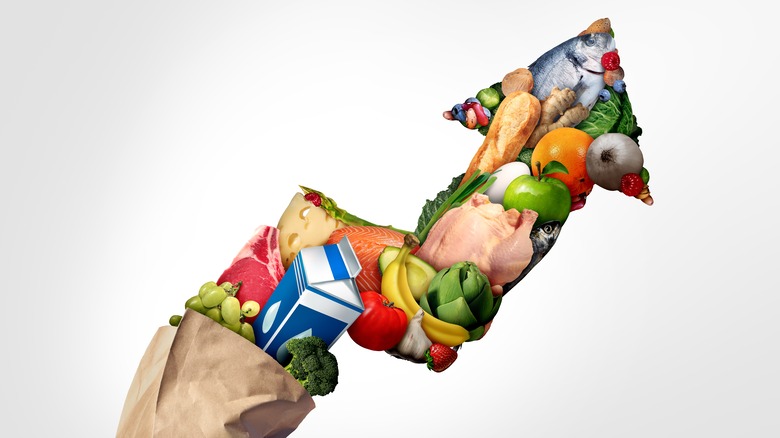New Study Shows Inflation Is Forcing Brands To Change Their Recipes
If you've tried one of your favorite snacks or foods in the last couple of years and thought it tasted a little different, you might not be wrong. A new study shows that some brands have had to change their recipes due to a shortage of their usual ingredients.
Dealing with an inconsistent food supply, rising prices, and supply chain issues can be a huge problem in an industry that sometimes punishes change. Major brands like McDonald's and Taco Bell can make a big deal out of updating menu items, and are sometimes met with backlash for doing so, per Eat This, Not That!.
A classic example is when coke announced a recipe change in the 1980s. According to Eat This, Not That! Coke believed it had a winning soda on its hands that was preferred to its old recipe, and its biggest competitor Pepsi. Many fans had a passionate response despite not even trying the new cola. It was discontinued a mere 78 days later and is now known as "the biggest mistake Coca-Cola ever made."
More than half have changed their recipes
A new survey released by TraceGains shows that more than half of the consumer-packaged goods businesses that participated had been forced to swap ingredients recently. 37% reported having to change the recipes of more than 20 products, while another 25% reported that they had changed recipes for six to 20 of their products. 90% of the participants said that higher prices are the main reason they are making these changes. None of the brands that participated were identified so it's hard to understand how impactful these changes have been, but it shows that the industry is scrambling to keep consumers' favorite products on the shelves.
Much like restaurants that have resorted to offering smaller menus to make do with limited supplies, 50% of participating companies said that they have had to discontinue products. Surveyed brands also admitted to seeking new ways of doing business to prevent future crises like this. 69% of participants have plans to expand their supplier network in the next two years.
Other food industries have also been left to adapt to this difficult market. According to Food Business News, restaurants have started offering familiar items in new presentation formats to help inspire shoppers to keep buying their products without having to rely on inconsistent supplies.

